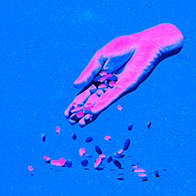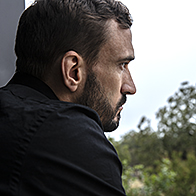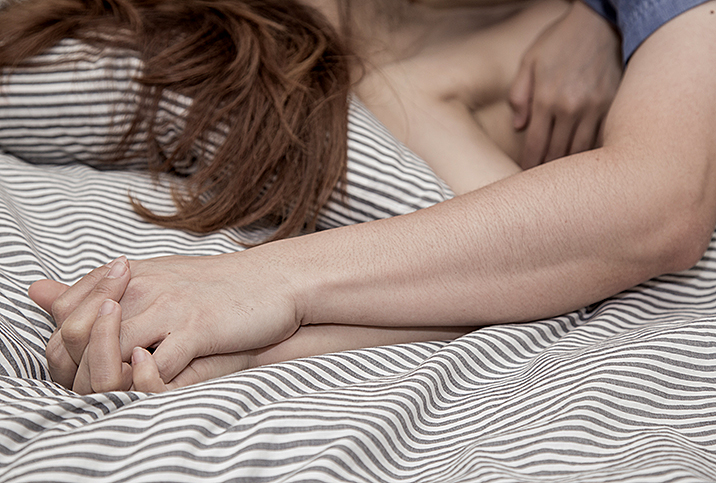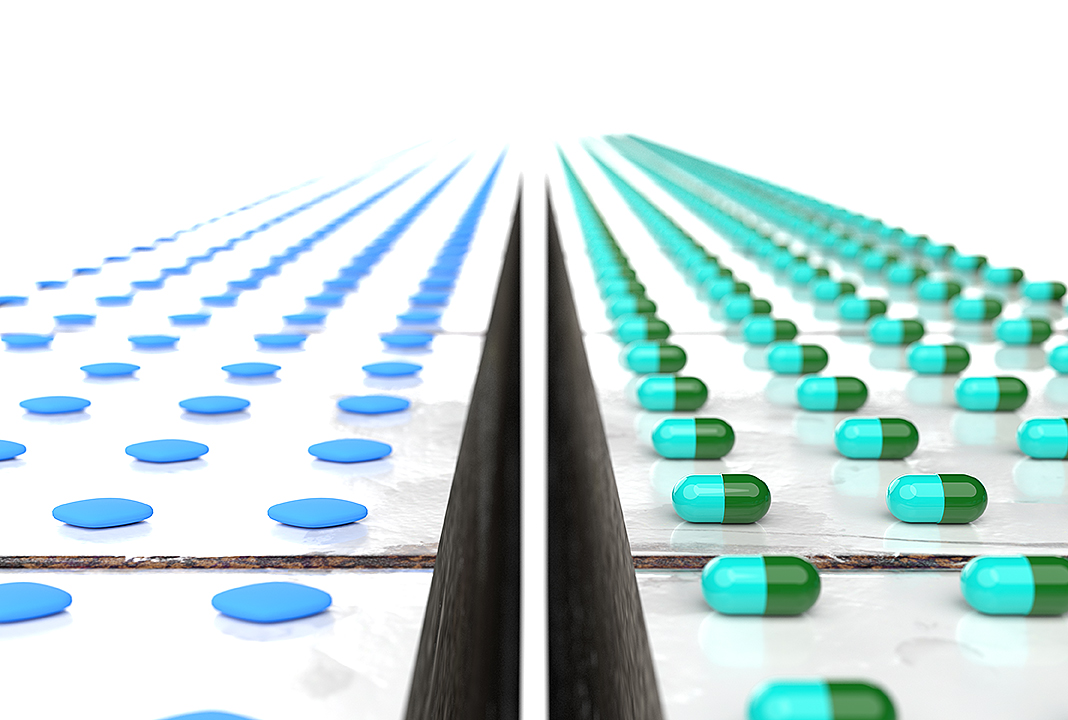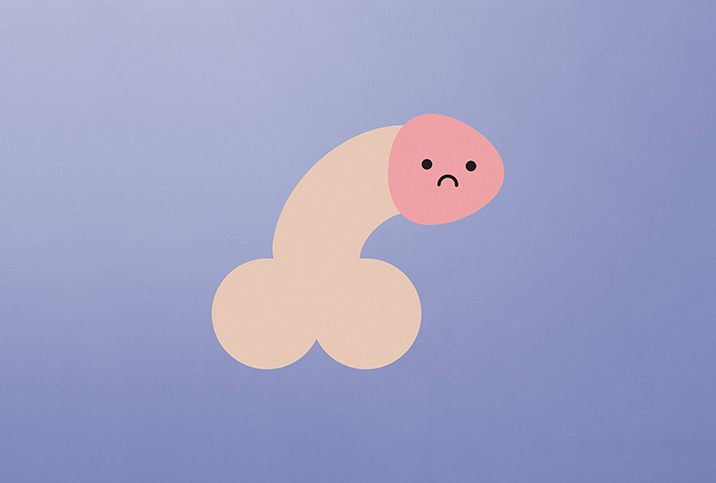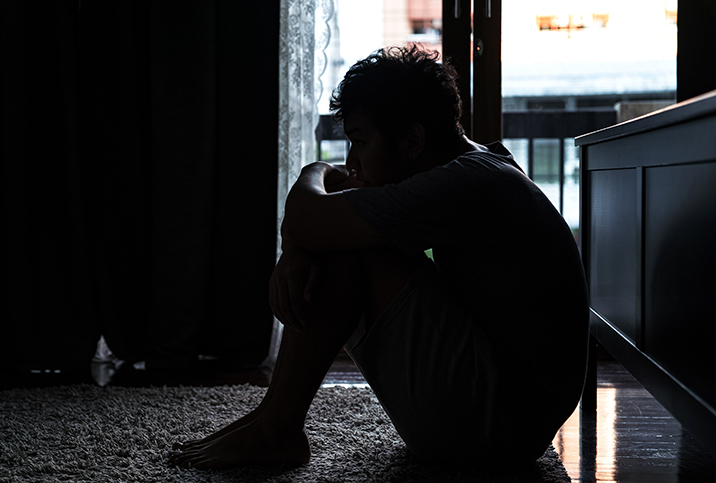Anxiety vs. Depression: They Can Both Impact Your Sex Life
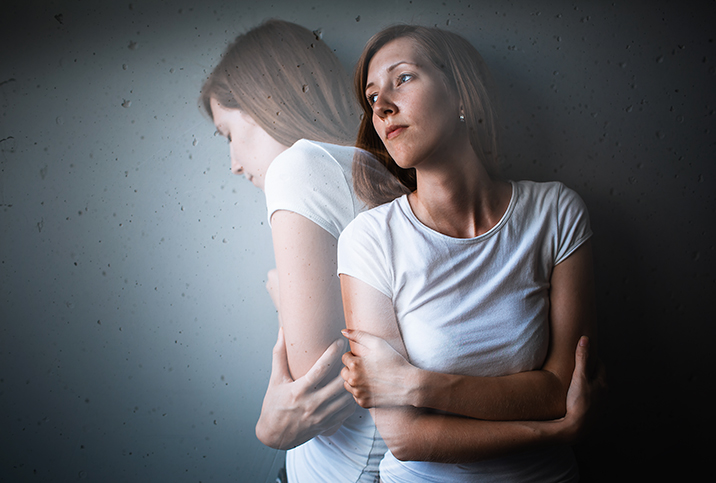
Anxiety and depression are two of the most diagnosed mental illnesses in the United States. About 40 million adults are affected each year, according to data from the Anxiety & Depression Association of America.
While there are numerous conditions that fall under the blanket term "anxiety disorder," most people know at least one (and likely more than one) person who deals with anxiety or depression on a day-to-day basis. Moreover, anxiety and depression frequently co-occur in affected individuals, which can prove a brutal double whammy of negative thoughts.
However, anxiety and depression are not the same condition, despite the association between the two. They are classified separately, and each presents a unique set of problems for sexual health. If you are dealing with both conditions, sexual side effects are only going to be more apparent.
What is anxiety?
Anxiety disorders are generally clumped together under the umbrella term "anxiety." The day-to-day use of the word "anxiety" refers to a normal reaction to stress that can, in certain situations, lead to beneficial outcomes.
Anxiety disorders, on the other hand, are mental health conditions that range from generalized anxiety disorders to specific phobias or panic disorders, as the American Psychiatric Association identifies.
Anxiety disorders are characterized by irrational fears or feelings of nervousness that impede everyday life, causing an anxious individual to avoid triggering situations. These triggers vary widely from person to person, and in some cases, the fear of triggering anxiety can complicate relationships, affect performance at work or in school, and lead to a host of physical and sexual issues.
What is depression?
Depression is a general term for a mental health condition known as major depressive disorder (MDD). Like anxiety, there is a nuanced relationship between the word "depression" and the disorder itself.
Depression generally causes intense feelings of sadness, a loss of interest or pleasure in previously enjoyed activities, changes in appetite, trouble sleeping or excessive sleeping, loss of energy and feelings of worthlessness and guilt.
It's not uncommon for people to experience periods of depression following tragic life circumstances, such as a loved one's death, the end of a relationship or the loss of a job.
Where depression falls into the categorization of a disorder, however, is when it lingers for an extended period of time or seems to be brought about by nothing at all. Ideations or thoughts of suicide are also potential symptoms of depression.
How anxiety and depression impact your sex life
Part of the reason anxiety and depression are sometimes confused is because they tend to have overlapping effects. For example, someone with depression may experience recurring thoughts that make them feel worthless, just as someone with anxiety may regularly overthink a situation where they felt worthless.
Patients with depression may experience symptoms of anxiety and may have a coexisting anxiety disorder that could complicate the diagnosis of depressive episodes. The presence of anxiety in the context of depressive episodes is recognized in the Diagnostic and Statistical Manual of Mental Disorders, Fifth Edition (DSM-5).
To analogize, think of depression as having had too many drinks at the bar, and of anxiety as having had too many cups of coffee. The former may make you sad, confused, immobile and lethargic; the latter might make you feel jittery, a bit paranoid and as if your heart is going to pound out of your chest. This is generally true, but both anxiety and depression can also cause cognitive distortion, and some people with depression experience more anger than sadness.
Those feelings can be applied to all aspects of life, especially more intimate moments, for a person experiencing depression or anxiety. What's additionally complicated is that many medications used to treat anxiety and depression—notably, selective serotonin reuptake inhibitors (SSRIs)—can cause adverse sexual side effects.
"We absolutely know that there are sexual side effects with SSRIs," said Sheryl Kingsberg, Ph.D., division chief of OB-GYN behavioral medicine and co-director of the sexual medicine and vulvovaginal health program at University Hospitals Cleveland Medical Center.
"[The problem is] if you think that your sexual problems might be related to the medicine you've been prescribed, you're going to stop taking your meds, right?" she said. "Or if you have anxiety and depression, and the medicine you're taking for it is causing problems in the bedroom, that's just not going to help with that depression."
SSRIs can cause a decline in libido and have been shown to cause erectile dysfunction (ED) for men. Of course, each issue in the bedroom can worsen some of the feelings caused by depression and anxiety or cause anxiety about sexual performance. SSRIs can also make it more difficult for both women and men to achieve orgasm, which in turn can result in more bedroom-related problems.
The same sort of issue happens to men who take antihypertensives for cardiovascular disease, Kingsberg pointed out.
"And so, guess what?" she said. "They're not taking their medicine for their cardiovascular disease because it's causing problems in their sex life."
For many people, medications are a necessary part of treatment, whether it's for hypertension or depression, but the sexual side effects lead them to stop taking their medication.
Beyond the physical side effects, depression and anxiety can cause a rift in relationships if left untreated and not discussed.
"Mental health problems like anxiety and depression can have a negative effect on sex between a couple," said Todd Schachter, M.S.W., L.C.S.W., a mental health therapist in Pittsburgh. "Problems with erectile dysfunction that are not medically induced point to issues around anxiety, which are complicated enough on their own. Anxiety over performance issues in sex can lead to a failure of communication in partners when someone feels like the other will not understand their anxiety or are too embarrassed by sexual performance to discuss it."
How to manage anxiety and depression
As with any other medical issue, it's important to have conversations about your treatment. If the medication you're taking is causing issues with libido or the ability to gain an erection or reach orgasm, let your doctor know, because a simple dosage adjustment could solve the issue. It may be possible to switch your medication to one less likely to cause sexual issues.
Finally, it's paramount to include your partner in all these conversations.
"Having an honest conversation over the sexual relationship can help reduce anxiety and create a safer place for partners to talk out their concerns and frustrations," Schachter said. "This is a great opportunity to not just increase a desire for sex but nonsexual intimacy as well."
Of course, medications such as sildenafil (brand name: Viagra) and tadalafil (Cialis) can help restore some sexual functioning that may have been lost due to anxiety, depression or the medications used to treat these conditions.
Another form of ED treatment that would not interfere with medications is Eddie by Giddy®, an FDA-registered Class II medical device designed to treat erectile dysfunction and improve male sexual performance. Its specific shape optimizes blood flow, putting pressure on the veins of the penis but not the arteries. In 2021 clinical trials, Eddie was shown to be effective in treating men with physically, psychologically and pharmacologically induced erectile dysfunction. The results showed that 95 percent of men using Eddie were capable of achieving a beneficial effect in their sex lives.
The most important point to keep in mind is that your mental health is just as important as your physical health, especially since they have an interdependent relationship.







